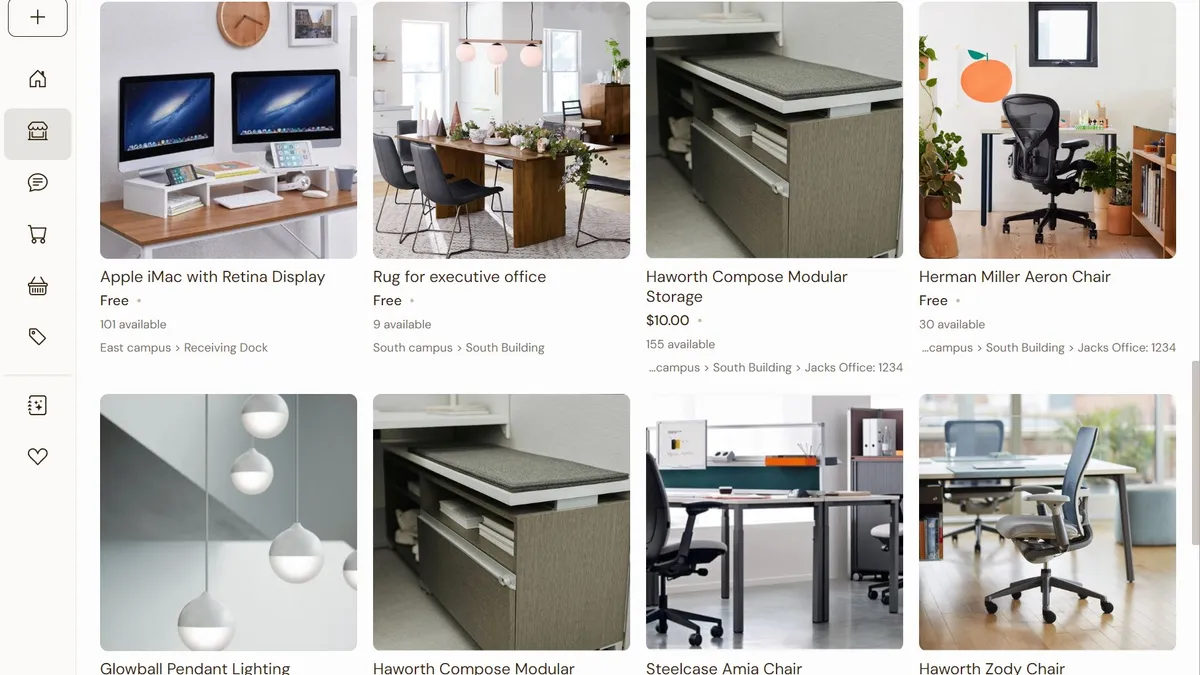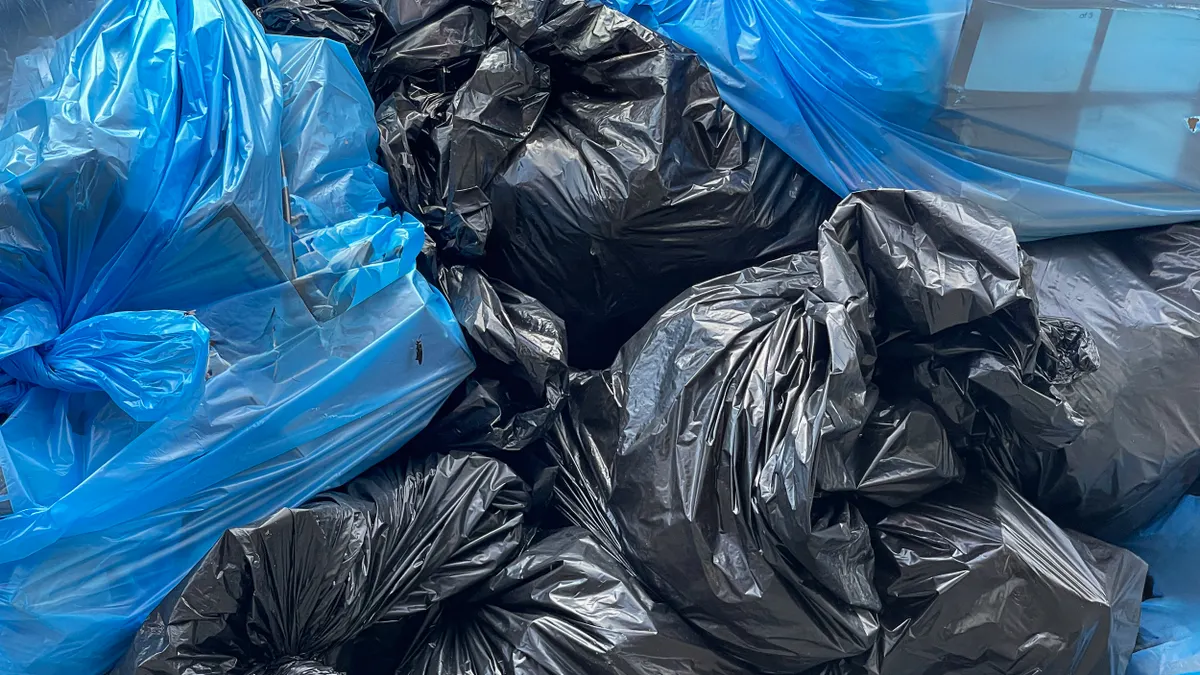Rheaply, an online platform for diverting usable items from disposal, aims to expand from a few major cities to 50 locations by the end of 2025.
Rheaply operates reuse marketplaces in locations like Chicago, New York City and Washington, D.C., where it mainly acts as a “matchmaker” to buy, sell and trade items like office furniture and salvaged building materials. Rheaply currently lists six operating locations on its website and will add more to its platform as it firms up sponsorships and partnerships, said Tom Fecarotta, Rheaply’s head of communications. The company plans to enter more markets soon, including Seattle and Austin.
The expansion plans come as cities work toward zero waste goals, private businesses aim to cut costs and the commercial real estate sector experiences changes related to work-from-home trends, said Daniel Kietzer, Rheaply’s director of sustainability.
Rheaply started in 2016 and began selling asset management software to large corporations like Target and AbbVie. That software was meant to help the companies exchange reusable items like furniture and equipment internally among the companies in order to reduce waste and cut down on procurement wait times. In 2022, it raised $20 million.
Rheaply has since expanded that service to be available publicly. Its Circular Cities program, available in several major U.S. cities, facilitates materials exchanges for businesses, not-for-profits and government organizations.
In 2022, Rheaply acquired the Materials Marketplace platform from the United States Business Council for Sustainable Development, a program that facilitated material exchanges in states including Michigan, Tennessee and Ohio. That acquisition helped Rheaply move into the C&D materials exchange space. As part of that acquisition, Rheaply worked with the Ohio Materials Marketplace to transition to the Rheaply technology platform, and it will continue to move the other locations over to Rheaply’s platform over time.
Ohio’s program continues to find homes for everything from shredded railroad ties to 55-gallon plastic drums. In 2023, the Cleveland Guardians baseball team used the Ohio Materials Marketplace to relocate over $117,000 worth of furniture, fixtures and equipment, Rheaply said. That exchange diverted about 70,000 pounds of material from the landfill.
On a recent day, across all the locations where Rheaply operates, its listings platform offered lumber, cement mixers, desk chairs, conference room tables, flood lights, bulk hand sanitizer and even vintage sinks and reclaimed heating vents.
“It’s a great program for the hard-to-recycle things. Sure, you probably have good coverage in your area for paper, aluminum, glass and the other typical things, but for everything else there's probably a better solution. That better solution might look like reuse,” Kietzer said.
One of the driving forces behind Rheaply’s expansion in major cities is the recent change in the commercial office space sector, where “these offices have furniture designed to be used for 30 years, while the average lease is seven years and will likely become even shorter than that,” he said. “One of our big wins as of late is focusing on finding homes for these sometimes high-end pieces of furniture, and also helping them find homes in community spaces.”
About 88% of companies expect their real estate footprint to change in the next three to five years, according to a recent CBRE insights report.
Kietzer said Rheaply must work closely with local businesses and local government agencies in the cities where they operate in order to make circular economy efforts effective.
In Washington, D.C., for example, numerous organizations and efforts are already underway to help the city achieve its goal of diverting 80% of its waste stream away from landfill and incineration. Seattle and Austin also have their own longstanding waste reduction plans. “I love the local partnerships we’re able to build and be a tool to help with outreach,” he said.
As Rheaply takes steps to expand geographically, it’s also working to widen its network of businesses that use the platform to exchange items. Some come to the platform to save money, while others are interested in tracking metrics such as how their purchases impact the environment, he said.
Rheaply’s platform offers a tool that helps calculate avoided embodied carbon. A network of partners helps find homes for the items listed on the site, and can also work to connect with recyclers to take specific materials if they can’t be reused or repurposed.
“What we ultimately want to see is that when we reuse more things, we're displacing new product purchases, and hopefully eventually reducing the amount of new product that's being manufactured,” he said.



















